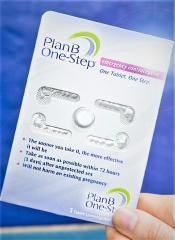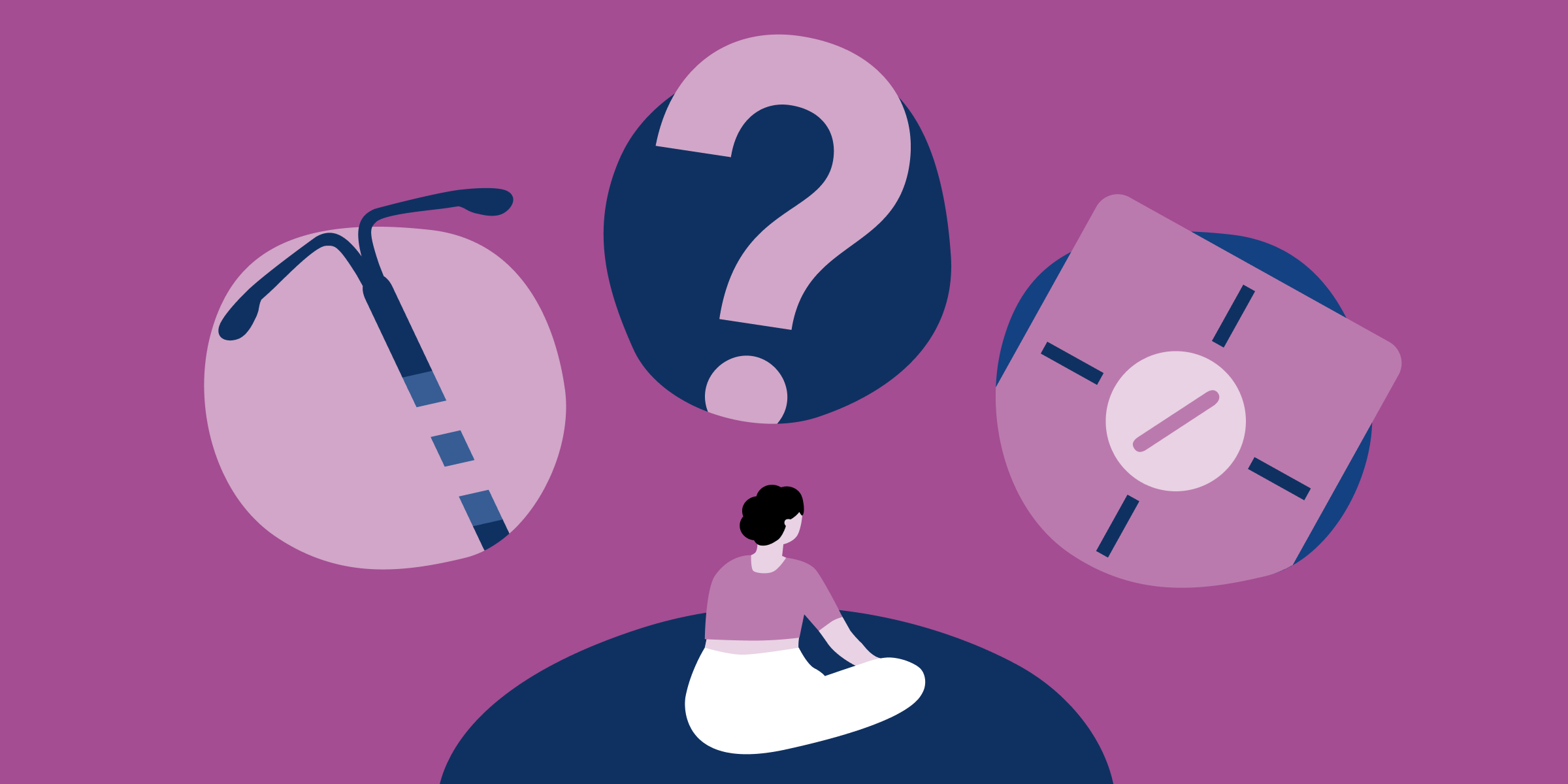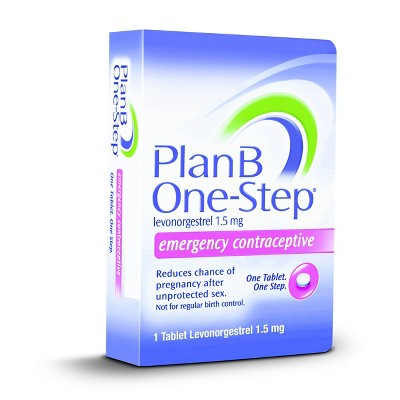Most of you here already know what Plan B is, and are here to find out why it didn't work for you and know the signs that Plan B didn't work for you early before it is too late.
Quick Facts About Plan B
Then, don't worry, we have got you covered here.
Plan B has been a popular form of contraception since its release in the late 1990s, but not all women experience the same level of effectiveness with it.
If you’ve taken Plan B as directed and still experienced pregnancy symptoms, it’s important to learn why Plan B didn’t work in your particular case.
And also be able to know the signs that Plan B didn't work for you before you try to prevent another unwanted pregnancy in the future.
There are many reasons why Plan B didn't work for you, and it may be helpful to know what these are and also be able to detect the signs early that Plan B didn't work for you to effectively prevent pregnancy in the future.
To find out all these, read on below!
Firstly, What is Plan B?
Plan B is an emergency contraceptive method. It includes levonorgestrel, a hormone identical to those produced by your body.
By causing changes in your cervical fluid and uterine lining, levonorgestrel prevents sperm from fertilizing an egg. Plan B resembles a spherical tablet with a single white line on it.
Although this drug is normally quite effective, it can fail at times.
If you believe your Plan B didn't work for you, consult with your doctor about your next actions. There are alternatives, and you and your partner may decide on the best course of action for you.
You may have had unprotected intercourse around the time of your ovulation, which happens approximately 5 to 7 days before your expected period.
If sperm is present in your reproductive system when you ovulate, it can fertilize an egg even if it has only been there for a brief period.
Plan B may not be effective in preventing pregnancy if taken after you ovulate.
Factors that affect the effectiveness of the Plan B Pill
There are many people out there that take the Plan B pill anyhow without knowing the proper time to use it, and this usually renders the pill ineffective.
So below are factors that negate the action of this pill.
- Ovulation: A widespread myth about Plan B is that Plan B didn't work for you because you have previously ovulated. Although the Plan B Pill prevents pregnancy by preventing ovulation, which reduces the effectiveness of sperm in fertilizing an egg. If you have already ovulated, then your chances of becoming pregnant are high because sperm can survive within your body for up to five days. So, even if you went with Plan B after ovulation, sperm from a prior encounter may still fertilize an egg.
- Time-frame: The pill is only effective if taken within 72 hours after unprotected sex or birth control failure (like a broken condom). It will not prevent pregnancy if taken more than three days after unprotected intercourse and may induce adverse effects such as nausea and vomiting.
- Weight: This is another factor that influences Plan B's efficacy. Plan B may be less successful in preventing pregnancy if you weigh more than 154 pounds because bigger women have greater amounts of progesterone, which can counteract levonorgestrel in Plan B.
- Use of other medications: If you are taking other medications at the same time as Plan B, notify your doctor before taking them to avoid potential conflicts between these treatments and levonorgestrel in Plan B. Antibiotics like amoxicillin or tetracycline are popular examples, as are anti-seizure drugs like phenytoin and heartburn meds like Nexium or Prilosec.
- Oral contraceptives or birth control pills: Plan B is less effective in women who use oral contraceptives or birth control tablets. If you are using birth control pills, notify your doctor before taking Plan B to avoid potential interactions between these medications and levonorgestrel in Plan B. Hormonal IUDs can have an impact on how effectively Plan B works by lowering its efficacy.
So, before proceeding with Plan B, all of these variables must be considered.
It is always a good idea to consult with your doctor about what to do and what not to do when taking this medicine to get the most out of it.
Signs that Plan B didn't work

The following are signs that Plan B didn't work:
- You have pain or discomfort, cramping, or a backache: These symptoms might indicate that you have an ectopic pregnancy. When a fertilized egg implants anywhere other than the uterus, this is referred to as an ectopic pregnancy. If you use Plan B and do not become pregnant, you are not likely to have an ectopic pregnancy. However, if your pain or discomfort persists after a few days, consult your doctor.
- You experience vaginal spotting: This is brown or reddish-pinkish discharge from your vagina. It might be an early indication of pregnancy. If your spotting does not stop after a few days, consult your doctor because it might be an indication of another ailment or infection.
- You have diarrhea, nausea, or vomiting: These symptoms may indicate an extrauterine pregnancy, which is a pregnancy outside the uterus (womb).
- Fatigue: Fatigue is another early indicator of pregnancy. Many women report feeling exhausted even when they haven't done much. This weariness is caused by your body responding to the elevated amounts of pregnancy hormones in your system.
- Frequent urination: Frequent urination may indicate that your body isn't able to store as many fluids as it once did. This is due to pregnancy hormones pushing your kidneys to work extra hard.
- Delayed menstruation: Taking the Plan B tablet might cause your menstruation to be delayed by one week. If your period does not arrive three to four weeks after taking the pill, you may be pregnant. You should use a home pregnancy test or contact your doctor.
Other possible early signs that Plan B didn't work for you include:
- Missed menstruation
- Tiredness
- Headache
- Lightheadedness or faintness
- Food aversions or desires
- Sensitivity to scents
- Breast swollen or painful
- Pelvic, back, or leg discomfort
- Bloating • Light spotting and/or cramps
- Nausea/vomiting
- Constipation
- Mood swings
Consult your doctor if you are concerned about an unintended pregnancy.
If Plan B didn't work for you, there are other options.
What you should do after taking Plan B to ensure its effectiveness

Do the following to guarantee that Plan B works for you:
- Check that you are not in your ovulation period.
- Take it within the specified period of 72 to 120 hours. To be on the safe side, I recommend 72 hours.
- Make sure you don't have a BMI of more than 29 or weigh more than 154 pounds.
- Make sure you are not taking any other drugs that will interfere with the action of the Plan B tablet. Always consult your doctor to learn which drugs can interact poorly with Plan B, so you can discontinue them or take another contraception that will not.
After taking the pill, utilize a barrier device such as external or internal condoms or refrain from having intercourse for at least seven days.
You can continue or begin using hormonal birth control (such as the pill, patch, injection, or ring) right away.
What happens if you take Plan B anyway during ovulation?
The solution is fairly straightforward. Because they are meant to postpone ovulation, no morning-after pill works during it.
If ovulation had already begun,
What if you still take Plan B or another Morning-After Pill anyway?

Taking a morning-after pill during ovulation is not harmful to your health.
However, you might still become pregnant.
This is because medicines, such as Plan B, might cause ovulation to be delayed to avoid conception.
However, if you're ovulating, an egg has already been released.
And sperm is more likely to reach it since it may survive in your body for up to 6 days.
Several studies have found that emergency contraceptive tablets containing levonorgestrel, such as Plan B, are ineffective when used on or after the day of ovulation.
If you don't know where you are in your cycle and the morning-after pill is your sole choice, it may be prudent to take it.
After all, you may not have ovulated yet, which may make a difference.
Some morning-after pills are less effective for persons weighing more than 155 pounds, so keep that in mind when deciding which emergency contraception option is best for you.
If you are able, seek the assistance of a doctor or other healthcare expert.
Your local clinic or Planned Parenthood may be able to supply you with counsel and the pill.
Is there anything you can do after or during ovulation to prevent pregnancy if Plan B didn't work?

According to the makers of Plan B, the morning after pill may prevent conception if ovulation has already occurred.
However, studies have shown that the levonorgestrel pill has little to no impact after ovulation.
So, what are your choices for avoiding an undesired pregnancy after ovulation?
Alternatives to Plan B Pill that will work during ovulation
Your best bet is the copper IUD. It remains effective after ovulation, and it can prevent a fertilized egg from implanting.
Depending on your insurance, this might be an expensive upfront choice, and it involves an appointment with a healthcare expert.
However, your local clinic or Planned Parenthood may also be able to assist.
Using a long-acting type of contraception is the most effective strategy to avoid pregnancy during your cycle.
There are various options available, including; pill, implant, IUD, injection shot, vaginal ring, and patch.
Condoms and other barrier measures are also available.
Although less successful than the procedures described above. Of course, you'd have to use them before having sex.
The copper IUD (ParaGard) is the safest emergency contraceptive if you have intercourse without sufficient contraception during ovulation.
For it to operate, it must be implanted within 5 days of intercourse or ovulation.
Once inside, the copper makes it harder for sperm to reach the egg, therefore eliminating the possibility of pregnancy.
You may also use it as a regular contraceptive for up to ten years.
The Bottom Line
If Plan B didn't work for you, the copper intrauterine device (IUD) is your best hope.
It is not only an excellent emergency contraceptive but it may also be used for long-term contraception.
It's a good idea to keep an emergency contraceptive pill on hand in case you need one in the future.
You can get a "just in case" prescription from your doctor or pick up an over-the-counter drug from the pharmacy to keep at home.
Remember that, like hormonal birth control, the emergency contraceptive pill does not protect against sexually transmitted illnesses (STIs).
If you suspect you are at risk for STIs, always use a barrier device when having intercourse and see your healthcare professional about STI testing.
It's not always easy to tell when you're ovulating.
As a result, it might be difficult to predict whether Plan B will work for you.
You can talk to your doctor about long-term birth control techniques, such as the pill or implant, to eliminate the need for emergency contraception in the first place.
And, if Plan B didn't work for you, take a pregnancy test three weeks later to be on the safe side.
Consult your doctor if you are concerned about an unintended pregnancy.
If Plan B didn't work for you, there are other options.
Okay, that's all there is to it.
I hope this post helps you recognize early the signs that Plan B didn't work for you, so you can move to more trustworthy tactics right away.
Frequently Asked Questions about Plan B Pill
What happens if you take the Plan B pill when you are pregnant?
Don't worry, Plan B tablets will not hurt the pregnancy or the fetus, nor will they harm you.
In summary, it will not accomplish anything—that is, it will not carry out its needed activity.
Plan B can only prevent ovulation if you haven't previously ovulated; it cannot stop ovulation after it has begun, nor can it terminate a pregnancy.
Who can take Plan B?
There is no age limit for using Plan B if you are capable of becoming pregnant.
However, because it is not a regular form of contraception, it should only be used in an emergency.
- if you had sex without protection.
- if the condom broke during intercourse.
- if you neglected to take your birth control pill the day before or after sex.
Is there a weight limit to Plan B?
There is no official weight restriction for Plan B.
However, the tablet may be less effective for persons with a BMI of 30 or higher, or who weigh more than 155 pounds.
What happens if you use Plan B after 72 hours?
Although the makers recommend using Plan B within three days of unprotected intercourse, you can use it up to five days following penis-in-vagina sex.
According to research, Plan B is "moderately effective" when taken between 72 and 120 hours after intercourse.
However, keep in mind that the longer you wait, the less effective it becomes.
Are there any side effects or risks to taking Plan B?
Plan B is seen as safe.
Although it includes a bigger amount of hormone than birth control tablets, the hormone does not stay in the body for long.
Of course, moderate side effects like headaches, stomach discomfort or cramps, nausea or vomiting, disorientation, and breast tenderness are possible.
Your menstrual cycle may also shift momentarily.
This implies that your period may arrive early or later, and it may be heavier or lighter.
Some people may have spotting between periods, while others have no change in their cycles at all.
There isn't much you can do to avoid these side effects, although anti-nausea medication and pain relievers may assist if you do.
If you vomit within 2 hours of taking this morning-after pill, consult your doctor to see if you need to take another dosage.
Remember that the greatest danger is when the morning-after pill fails.
So, if your menstruation is unusually late, get a pregnancy test.
It's also important to remember that Plan B might cause pregnancy, so take birth control before engaging in sexual intercourse again.
How much does the Plan B pill cost?
Plan B will cost between $40 and $50.
Plan B is more costly since it is a branded type of emergency contraception (EC).
Generic levonorgestrel tablets are less expensive and function in the same way.
There are alternative methods to save costs.
If you have insurance or Medicaid, you may be eligible for some sort of EC.
At a family planning clinic or local health department, you may be able to acquire EC for free or at a considerably cheaper cost.
The maker of Plan B also offers a discount and rebate program. Get a coupon and present it to a Plan B retailer to receive a $10 discount.
Where can you get it?
If you've already purchased the morning-after pill, you may submit a photo of your receipt online or send it in for a rebate.
Plan B is accessible without a prescription in drugstores and pharmacies.
So you don't need a prescription or identification to buy it.
It could be on the family planning aisle, or you might have to ask the pharmacist to obtain it if it's behind the counter.
The morning-after pill is also available in family planning clinics, county health departments, and Planned Parenthood locations.
If you want to purchase it online, you may do so straight from the manufacturer.
Please keep in mind that shipping takes 4 to 6 days.
Plan B is also available online at Walgreens and CVS.
Always buy from a reliable vendor, and try to buy ahead of time because you can't promise when it'll be delivered.
How long do I have to implement Plan B?
Plan B One-Step is a single tablet that should be taken as soon as possible after having unprotected intercourse, missing a contraceptive pill, or failing to use contraception.
The tablet should be consumed whole, ideally with water, with or without meals.
For a greater effectiveness rate, Plan B should be taken within 72 hours following unprotected intercourse.
Is Plan B the same as the ‘abortion pill’?
Plan B does not constitute an "abortion medication."
Levonorgestrel acts to prevent pregnancy from occurring.
Plan B prevents ovulation, so it won't work if you're pregnant already.



